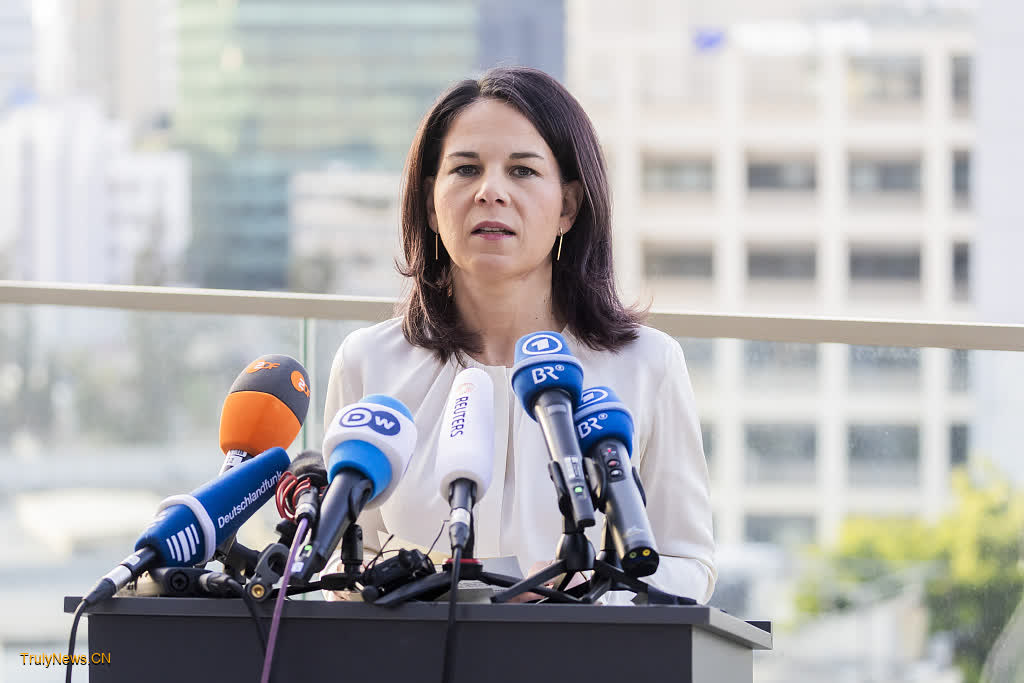
Sino-German relations, the European Union’s “anti-subsidy” tariffs on Chinese-made electric vehicles and other issues of common concern were all included on German Foreign Minister Annalena Baerbock’s list of topics for discussion during her two-day visit to Beijing that concluded on Tuesday. But as expected, the Ukraine crisis was also burning a hole in her agenda.
Although the top German diplomat came primarily to co-chair the seventh round of the China-Germany Strategic Dialogue on Diplomacy and Security in Beijing with her Chinese counterpart Wang Yi, as agreed by the heads of state of the two countries, she not only had in-depth talks with Wang, but also met with Liu Jianchao, head of the International Department of the Communist Party of China Central Committee, indicating the strategic importance Beijing attaches to relations with Berlin.
Baerbock, who maintains a tough stance on the Ukraine crisis, was informed firsthand of China’s steadfast commitment to doing its part to help broker a political settlement to the largest armed conflict Europe has seen since the end of World War II.
Europe is a significant partner to China in various fields, and China has stable relations with both Ukraine and Russia. It is not a party to the crisis, nor does it have anything to gain from it. Instead, as the world’s second-largest economy, China has suffered tremendous spillover effects from the crisis.
Among them are the sustained pressure it has had to bear thanks to the unilateral sanctions the United States and its allies have imposed on Russia, and Washington’s painstaking efforts to implicate China as an agent of the conflict by smearing it as an “enabler” of Russia’s “special military operation”. That is a misdirection as it is actually the US that has benefited from the crisis that is of its own making.
That’s why both Liu and Wang have highlighted Beijing’s respect for Germany as a reliable partner with the vision, wisdom and ability that match its status as a responsible major player on the world stage, in the hope that, as the valuable autonomy it has demonstrated on the issue of the European Union’s tariffs on Chinese-made EVs, it can also practice similar strategic independence in handling such burning issues as the Ukraine crisis.
Beijing is by no means calling on Berlin to make an either-or choice between China and the US, but urging it to objectively evaluate the situation faced by Germany and Europe at large and see the other side of the coin of the Russia-Ukraine conflict.
If all major countries, including the US, put aside short-term selfish interests and worked together with each other for the common good of the world, crises such as the Russia-Ukraine conflict would not occur.
Germany should work together with China and other peace-loving nations to help set the table for ceasefire talks between Russia and Ukraine, discarding the you-are-either-on-the-table-or-the-menu preaching that is symptomatic of bloc confrontation and a zero-sum game.